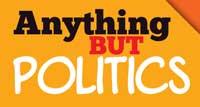22 Oct 2020 - {{hitsCtrl.values.hits}}
For any government, criticism emanating from the opposition is one thing. But, resentment generated from within is another
The Government took a step back and listened to criticism
However, Government leaders were not ready at all to scrap the proviso that provides for dual citizens to enter Parliament
 The 20th Amendment to the Constitution is now under debate, and it is expected to be put to vote at 7.30 pm today. The first piece of legislation of the new Government formed after the August 5 General Election reached the debating stage at a political cost to the Government. True, the Government looks to be in a position to rope in a few more from the opposition to enact it with a two-thirds majority in Parliament. But there is doubt whether it will be a pyrrhic victory for the ruling side which is in its first year in office.
The 20th Amendment to the Constitution is now under debate, and it is expected to be put to vote at 7.30 pm today. The first piece of legislation of the new Government formed after the August 5 General Election reached the debating stage at a political cost to the Government. True, the Government looks to be in a position to rope in a few more from the opposition to enact it with a two-thirds majority in Parliament. But there is doubt whether it will be a pyrrhic victory for the ruling side which is in its first year in office.

The moment after the Bill was gazetted, the opposition upped the ante against its content. It is natural for opposition parties to stand in the way of Government proceedings to sign the Bill into law since it basically seeks to roll back the 19th Amendment incorporated into the Constitution by the previous Yahapalana Government, supported by a bulk of the present-day opposition legislators.
|
Basil Rajapaksa’s political management and organising skills were instrumental in ensuring the victory of the Government at three successive elections is recognised by the regime’s leaders |
For any government, criticism emanating from the opposition is one thing. But, resentment generated from within is another thing that entails far reaching consequences in the long run, unless addressed forthwith. Any government cannot easily disregard internal bitterness against any of its moves. The present Government got a lot of flak from a section of its own MPs against the contents of the 20th Amendment. These MPs were backed, or sometimes given leadership by the section of the Buddhist clergy that formed the ideological bedrock of this Government during election times. They are Ven. Elle Gunawansa Thera, Ven. Muruththettuwe Ananda Thera, Ven. Bengamuwe Nalaka Thera and so on. They took on the government openly, and the Cabinet bowed to pressure exerted by them along with some other MPs.
The Cabinet met on Monday with both President Gotabaya Rajapaksa and Prime Minister Mahinda Rajapaksa. By the time, the Supreme Court had determined on the contents of the Bill. After the Cabinet meeting, the Government’s parliamentary group also had its deliberations on the Bill. The Government took a step back and listened to criticism when it consented to accommodate three more substantial changes to the original draft: to restrict the Cabinet size to 30, and the number of non-Cabinet ministers to 40 as enshrined in the 19th Amendment, subject government-owned business undertakings to audit by the Auditor General in keeping with the presently envisaged procedure and present Urgent Bills only in respect of matters pertaining to public security and disaster management. In addition to these three aspects, the Government will knock off four other clauses of the original draft which require the approval of the people by referendum in addition to a two-thirds majority of Parliament.
The removal of this barrier seems to be aimed at creating the background for Basil Rajapaksa to become a parliamentarian
However, Government leaders were not ready at all to scrap the proviso that provides for dual citizens to enter Parliament. The 19th Amendment, which was enacted during the 100-day period of the Yahapalana Government, blocked dual citizens from becoming MPs or the president of the country. Rather than a decision driven by principle, it appeared to be a politically motivated attempt by the then Yahapalana Government to bar present President Gotabaya Rajapaksa and former Minister Basil Rajapaksa from
contesting elections.
President Rajapaksa renounced his dual citizenship with the United States and successfully contested the 2019 Presidential Eslections. Basil Rajapaksa is yet to renounce his. Some MPs and a section of the Buddhist clergy are against the present government’s move to remove the barrier for the dual citizens to enter Parliament. The removal of this barrier seems to be aimed at creating the background for Basil Rajapaksa to become a parliamentarian.
Most MPs who are opposed to the removal of this bar on dual citizens have not taken up their position based on principle, though. That dual citizens becoming MPs may have a conflict of interest when it comes to the matters pertaining to both countries they represent is an argument with merit. However, in this instance, it is something driven by their personal feuds with Basil Rajapaksa. This bitterness with Basil Rajapaksa has remained for a long time. But, the government leaders are not ready to bow down to pressure in this regard. That Basil Rajapaksa’s political management and organizing skills were instrumental in ensuring the victory of the government at three successive elections is recognized by these leaders.
Be that as it may, the government finally yielded to internal pressure and agreed for substantial changes to the original draft of the Bill. It indicates one fundamental aspect of the political circumstances that led to the election of this government: that is that the rulers cannot deviate from the basic aspirations of the core political forces which brought them to power.
These forces worked for the election of these leaders for certain objectives determined by them. Today, the leaders have been held to account by them, at least to some extent.
Finally, the 20th Amendment will be passed into law. Government MPs have passed a resolution to support it. However, the initiative created fissures within the government in its first year in office. Whether these cracks will be mended or widened will depend upon the future actions of the government only. Otherwise, the 20th Amendment will be a pyrrhic victory.
It is argued that the 20th Amendment will create an all-powerful Executive Presidency. Once that is enacted, President Rajapaksa will get more authority. However, he will not be as powerful as the presidents who served in this country before 2015, if it is enacted with changes proposed by the Supreme Court and
government members.
24 Oct 2024 39 minute ago
24 Oct 2024 54 minute ago
24 Oct 2024 2 hours ago
24 Oct 2024 2 hours ago
24 Oct 2024 2 hours ago